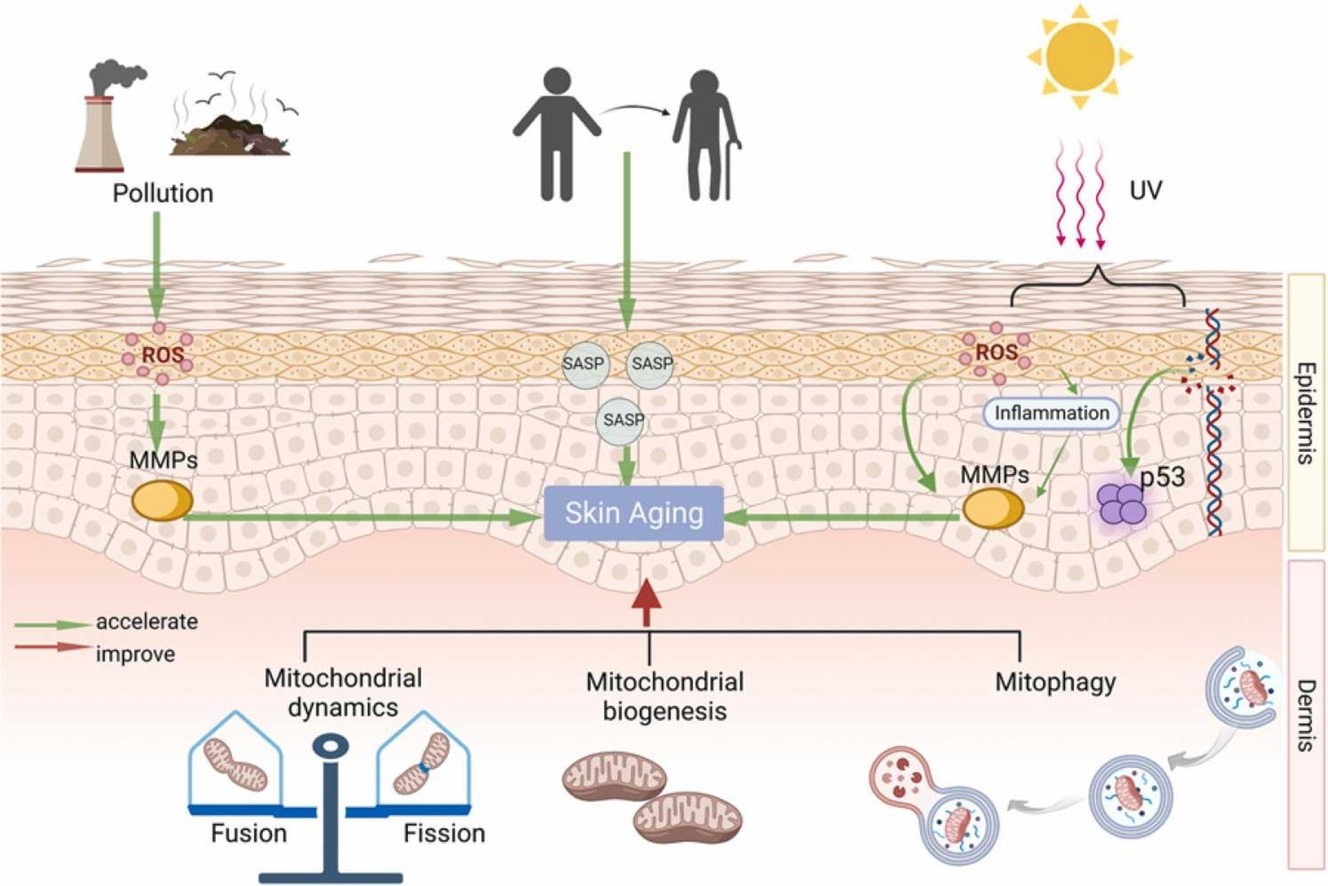
Mitochondrial Quality Control: Key to Addressing Skin Aging

Graphical Abstract: The homeostasis of mitochondrial quality helps to ameliorate skin aging caused by internal and external factors. Credits: Chang Zhang et al., 2023.
Researchers from Jilin University, China, led by Dr. Xu He, have published a review shedding new light on skin aging and mitochondria. Their findings highlight the critical role of mitochondrial quality control, offering findings that could modify our perception to aging skin.
Skin, our body’s largest organ and primary defense against environmental stressors, undergoes aging accelerated by internal and external factors like natural aging, UV radiation, and pollution.
The study highlights the importance of mitochondria, known as the cell’s powerhouses, in maintaining skin’s high turnover capacity. Maintaining mitochondrial quality is essential in combating skin aging.
Examining complex mechanisms such as mitochondrial dynamics, biogenesis, and mitophagy, the study reveals how these processes collectively regulate mitochondrial quality control, crucial in mitigating skin aging.
Moreover, the research highlights the correlation between mitochondrial quality control and skin aging induced by various factors, emphasizing the need to fine-tune these mechanisms urgently.
The study also identifies potential mitochondrial biomarkers for diagnosing skin aging early, offering promising avenues for intervention. Therapeutic strategies targeting mitochondrial quality control emerge as promising approaches to combating skin aging.
This comprehensive review not only addresses physiological and environmental factors contributing to skin aging but also provides insights into the regulatory mechanisms of mitochondrial quality control. Knowing that, researchers and skincare professionals can develop targeted interventions for healthier, more youthful skin.
Join Skin Ageing & Challenges on November 5-6, 2024 at Corinthia Palace Malta to know more about all recent advances in mitochondria & skin aging research.
Did you like the news ? Please share it with your circle.